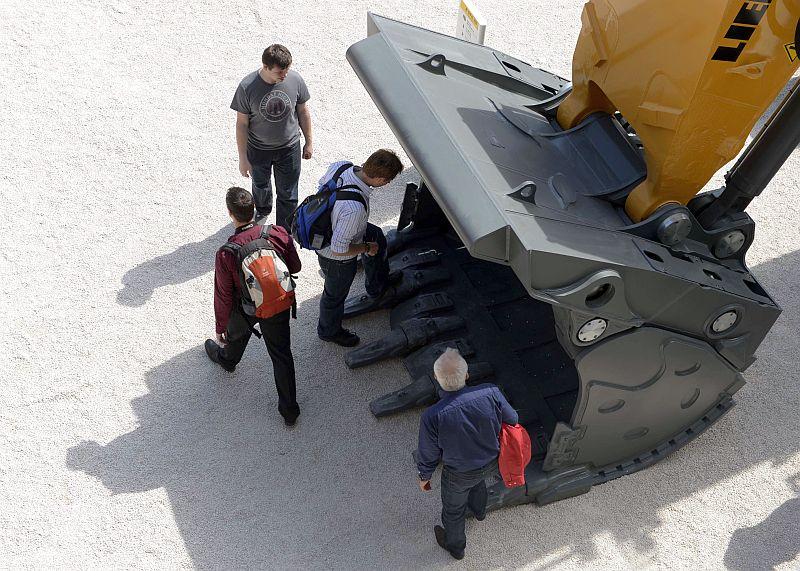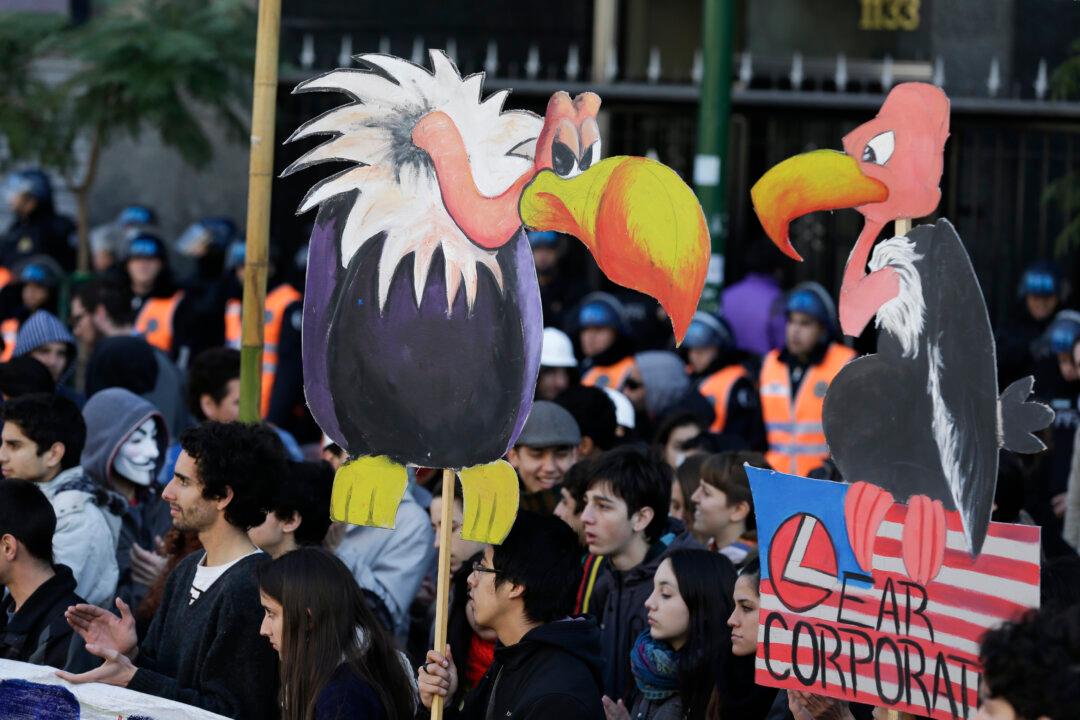A large mineral discovery ignites anticipation in nearby communities for economic development, infrastructure investment, and jobs as huge bulldozers, trucks, and drills roll in. China, with trillions in U.S. dollar reserves and a voracious hunger for raw resources, hopes to entice Greenland’s 57,000 inhabitants into further loosening Danish rule in order to assist its drive toward Arctic resources. Such Chinese investment should theoretically help develop Greenland’s economy by increasing employment and living standards.
But the jobs and training goals seem an elusive dream. The mining industry relies on massive, expensive equipment supplied by a handful of foreign companies, controlled under tight maintenance contracts that historically have not benefited local parties. The development of skilled workers and supporting vocational education in Greenland must be considered, as labor supply will eventually become constricted when more mining projects come online.
Greenland is an autonomous territory of Denmark with limited self-government. In 2009, Greenland received considerable autonomy from Denmark and can make its own decisions in investment, except in areas of foreign policy and national security. Nonetheless while self-government allows Greenland in principle to act alone, politically things are more complicated due to the links and subsidies with Copenhagen. Denmark provides the bulk of budget revenue, and Greenland, historically a fishing region left undeveloped, holds vast deposits of gold, diamonds, zinc, platinum, nickel, iron, and rare earth elements.
With Social Democrats back in power under new, hard-line Prime Minister Alequa Hammond, Greenland is considering mining contracts for iron ore even as it seeks quick departure from “colonial Denmark.” Denmark has supported and controlled Greenland for 300 years without profit—and may want to assess its long-term resource needs with Greenland, now more accessible due to better mapping technology and the effects of global warming on the Arctic ice sheet.
Mining Implications
But at what cost? Mining poses economic implications, described as the resource curse: Many mining operations fail to lift indigenous communities, leave vast amounts of environmental damage in their wake, and add little to government coffers when oversight is weak. Many government officials have no idea of the leviathan technical and logistical issues involved with mining and, even if they do, generally trust mining companies for the solutions. Nonetheless the mining business can contribute to the resource curse and impoverish societies, be it in Congo, West Virginia, or Indonesia.
The Isua iron ore deposit, in southwest Greenland, near pristine fjords and bays, was discovered in 1965, first by Marcona Mining, and later controlled by global mining entity Rio Tinto. It was sold in 2005 to London Mining, listed on the London Stock Exchange, without production being started. The pristine site will most probably be strip-mined, according to London Mining, with vast areas of topsoil and ice cleared. Even underground mining could remove significant topsoil to set up buildings, conveyor equipment, and roads.
Despite high EU unemployment, London Mining seeks to lead a joint venture using its technical expertise along with Chinese finance and labor in partnership with China’s Sichuan Xinye Mining Investment Co. in Isua. About 3,000 Chinese workers would be sent to Greenland for the establishment phase—a contentious issue between London Mining and Greenland’s state resource department today.
The Chinese would finance this $2.3 billion project, which could be ready in 2015 with huge infrastructure investments, including a harbor, airport and roads, and (according to London Mining), turn a profit by 2019. If the venture is successful, other Chinese state-owned mining companies, such as Jiangxi Zhongrun Mining and Jiangxi Union Mining, which have prospected in Greenland but have not yet started production, would then enter the fray for gold and copper.
The mining law allowing explored deposits to become producing, has recently passed the Greenland Parliament, but the devil is in the details. Prime Minister Hammond wants to remove nil tolerance toward mining uranium. Here, Denmark has the controlling hand, because uranium falls under foreign policy. She also seeks a royalty from mining companies, meaning that the mining companies must pay for every ton of mined ore, even if there is no profit. In recent years, mining has operated on tight profit margins with built-in cost overruns.
Employment Illusion
The quality of the Isua iron ore is described as high grade, similar to India’s iron ore in Odisha State. This Indian ore has attracted interest of two major firms, one Korean and the other British. But both faced significant political headwinds in the world’s largest democracy over perceptions that the project would do little to lift living standards with local employment limited to subservient jobs including cleaning, cooking, or driving.
The massive, expensive equipment used in modern mines—loaders, bulldozers, electric trucks, conveyors, tires and diggers—is proprietarily maintained by foreign companies such as Caterpillar, Hyundai, Mitsubishi, Siemens, ThyssenKrupp, GE, and others. Companies that sell equipment also sell maintenance contracts. The FMC, or full maintenance contract, is essentially a “lock up agreement” with the provider of that equipment for value added work and equipment maintenance over the life of a mine or under a licensing agreement into perpetuity.
The equipment companies regard the maintenance skills as proprietary, so there is little technology transfer or economic opportunities for small communities near mines. Maintenance, in this day of automated production, generally employs 60 percent or more, of a mine’s operations.
A lack in skill transfer is a major impediment to local development. The FMC, including contractors, limits training opportunities for locals. For example, Thyssen in Germany sends high-tech automated conveyors to Congo. The mine pays Thyssen for the conveyors plus a turnkey licensing fee of 50,000 euros per month to provide an electrical expert on-site. Thyssen thus retains all skills within its workforce to fix, maintain, and upgrade the conveyors, essentially recirculating profits and keeping Congo dependent on the foreign technology.
In other words, the FMC ensures that the mine is beholden to expensive automated technology, with the provider controlling the technology and all associated value-added jobs for profit.
Most leaders are unaware of the trends in the mining industry that constrict local jobs. Greenland, unlike Denmark, lacks technical expertise for mining. Despite Greenland’s sovereignty initiatives, the territory would be wise to link with Danish industry, which despite a population of 5 million, has achieved considerable expertise in resource extraction and an established public sector experienced in dealing with global partners for services. Danish companies like F.L. Smidth and Aalborg Portland are also strong in mining equipment. Aligning the Danish technical industry with Greenland’s resources would seem an obvious move.
Before any Chinese labor contracts are approved for Greenland’s mining, leaders should insist on investment contract terms that allow skills transfer with equipment providers actually hiring Greenlanders first and training them in the proprietary systems. Research has shown that that Chinese companies are generally loathe to hire non-Chinese in their operations or provide long-term commitments to a local population, but such terms may still fall under EU policy regarding resources.
Extractable resources are for some societies the only ace in the hole and must be guarded for future generations. Those that fail to optimize their natural resources could be left in economic limbo. Before signing contracts, countries must study up and negotiate hard with the mining industry. Greenland would be wise to utilize Danish experience and expertise in its mining development—as well as human rights—before allowing unproven Chinese extraction methods and cheap labor in the Arctic Circle.
Will Hickey is an associate professor and chair of Global Management at SolBridge University. With permission from YaleGlobal Online. Copyright © 2013, Yale Center for the Study of Globalization, Yale University.




